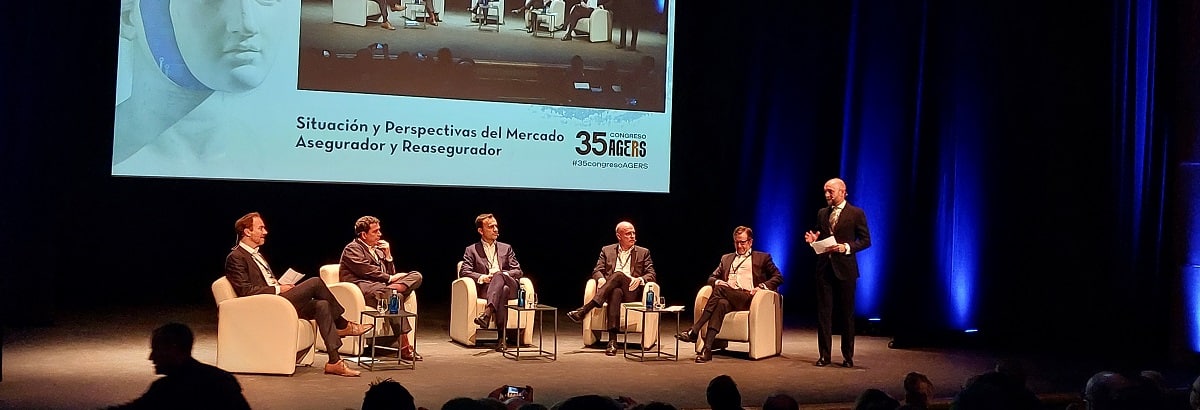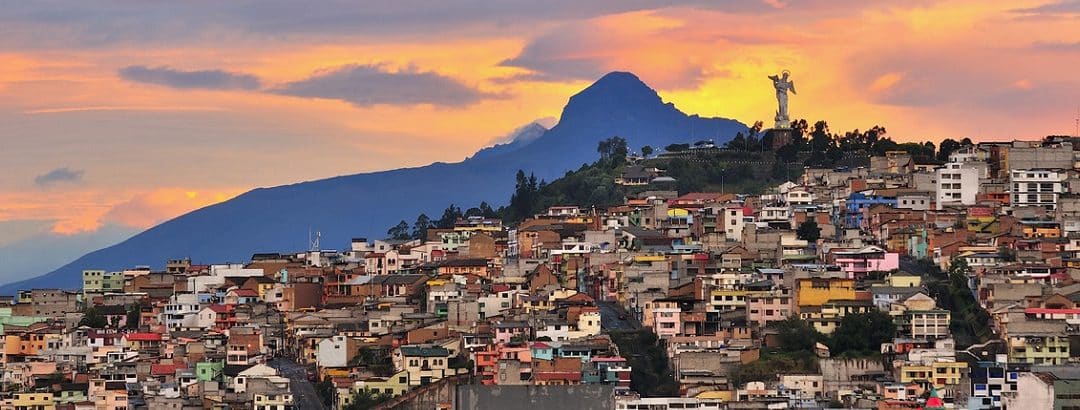Gonzalo Sanz Segovia | 16/07/2025
Under the slogan “The Art of Risk”, AGERS (the Spanish Association of Risk Management and Insurance) held it 35th annual Congress at the Círculo de Bellas Artes in Madrid city center on June 26. The meeting brought together more than 400 professionals, including risk managers, insurers, reinsurers, brokers and other experts in the field of large risks and insurance, and where reflections, data and strategies were shared on an environment in constant transformation.
Insurance and reinsurance market outlook: keys to navigating uncertainty
One of the most anticipated moments of the congress was the panel “Situation and Perspectives of the Insurance and Reinsurance Market,” presented by Bosco Francoy, CEO of MAPFRE Global Risks and president of the AGERS Advisory Board. Accompanied by the most senior managers in Spain of the main global brokers – Iván Sainz de la Mora (WTW), Jacobo Hornedo (AON), Pablo Trueba (MARSH) and Salvador Marín (HOWDEN) – the debate, moderated by Ignacio del Corral, global head of Corporate Insurance at Grupo Santander and member of the AGERS Board of Directors, provided a strategic vision of the challenges and opportunities facing the sector.
The analysis began with a clear conclusion: the market finds itself in a softening phase, with a 3% drop in rates during the first quarter of 2025. This isn’t news in itself, but this trend doesn’t reflect a drop in catastrophic claims – which, in fact, have increased – but rather underscores other factors such as the improving the financial results of insurers, lower dependence on reinsurance, greater geographic diversification and the positive impact of high interest rates in previous years.
However, as Jacobo Hornedo warned, “we’re not operating in a normal environment.” Market cycles are getting shorter and more intense, driven by phenomena such as climate change, cybersecurity and the emergence of artificial intelligence (AI), which are redefining the global risk map.
Volatility as an opportunity
Far from perceiving volatility as a threat, the speakers agreed that it represents an opportunity to innovate, to strengthen the risk culture and to position risk managers as key figures in strategic decision-making. “It’s time to give this role a much-needed push within organizations,” said Iván Sainz de la Mora, emphasizing the need to make uninsured risks visible and provide value from a comprehensive perspective.
Salvador Marín reinforced this idea by highlighting that “risk managers must be in sync with their CEO,” actively participating in defining strategies and identifying risk transfer opportunities in an increasingly uncertain environment.
AI: efficiency, personalization and new challenges
AI was another central theme of the debate. Experts agreed on its enormous potential to transform client relationships, optimize processes, detect fraud and customize products. However, they also warned of the associated risks: from job transformation – with 80% of employees potentially affected – to ethical dilemmas, cybersecurity and the need to maintain critical thinking.
“The role of AI is as best supporting actor – people have to remain front and center,” said Pablo Trueba, in a reflection that summarizes the humanist approach that should guide technological adoption in the sector.
Coverage gaps and public-private collaboration
One of the most revealing data points was that only 25% of natural disaster losses are insured, according to EIOPA data. In light of this gap, the speakers highlighted the Spanish model as an example of success, thanks to the intervention of organizations like the Insurance Compensation Consortium. However, they stressed the need to advance social awareness and international collaboration to close these coverage gaps.
The broker of the future: digital, strategic and human
The closing panel session focused on how the role of the broker is evolving, and how it needs to be transformed into a strategic partner for enterprises. Digitalization, service customization, data quality and talent will be the pillars of this new stage. “This is still a people-first business,” said Salvador Marín, highlighting that the organizational culture and professionalization of the sector will be key to building trust and bringing real value to clients.
A look beyond the sector: a presentation by Vicente Vallés
The congress closed with a keynote speech by journalist Vicente Vallés, who offered a geopolitical overview of the current environment. Vallés warned of growing disinformation and the need to compare sources to anticipate events. “True information is essential, but more so is the ability to analyze it objectively,” he said.
In his speech, he also addressed the impact of AI, highlighting that this revolution will first affect intellectual work, and not manual work, as occurred in previous revolutions. He also warned of global economic uncertainty, China’s role as an emerging power, and the erosion of the United States’ appeal as an investment refuge.
His final reflection, inspired by Churchill, was clear: “A politician becomes a statesman when they start thinking about the next generation and not about the next election.” The quote resonated strongly at the AGERS 35th forum, where strategic thinking and anticipation are essential for managing the risks of the present and the future.





